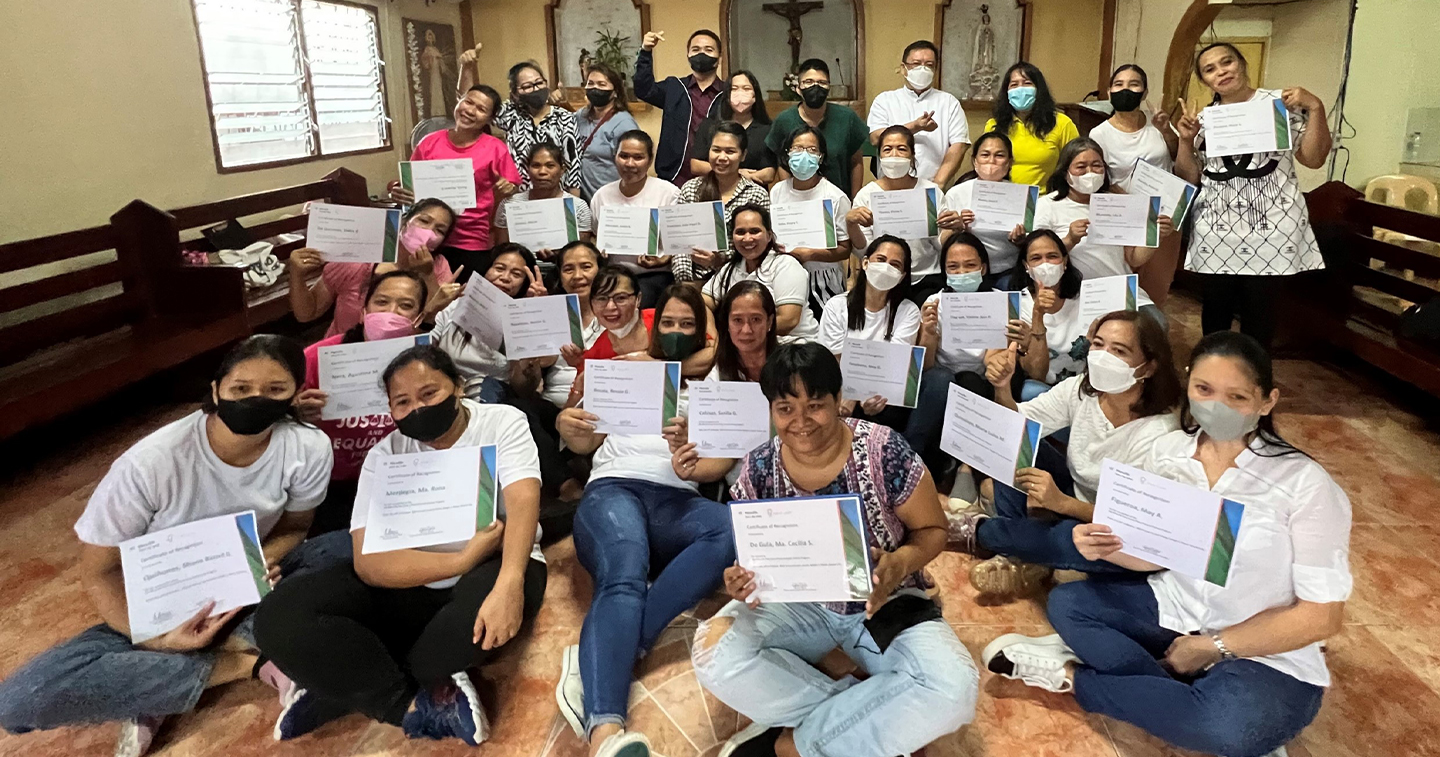MANILA, PHILIPPINES — Insurance company and financial services provider Manulife has expanded its award-winning “Peso Smart” financial literacy program with new sessions for over 300 university students from across the country and extended the program to provide financial lessons to 50 female heads of household from two communities in Quezon City and Sagada, Mountain Province. To further promote financial education through creative storytelling, a new iteration of the “Manulife Peso Smart” storybook series is also available to download for free on the company’s website.
These initiatives are aligned with a key area of focus within Manulife’s Global Impact Agenda, driving inclusive economic opportunities to create a more even playing field for all. Since it started in 2017, Peso Smart has produced more than 1,500 graduates nationwide.
“We continue to evolve Peso Smart, so we can reach more Filipinos and equip them with the financial skills they need to be smarter money managers,” said Manulife Philippines Chief Marketing Officer Melissa Henson. “Through customized modules and activities that are delivered using various media, we share knowledge and practical skills that can empower them to save, grow their money, and more confidently take charge of their future.”
Manulife’s recent study, “The Modern Filipino Family: Exploring family dynamics and digitalization in the new normal,” revealed that 69% of Filipino Gen Zs surveyed cited financial challenges as one of the top triggers of family conflict, signaling the need to learn smart money habits so they can learn how to financially protect themselves, especially in times of uncertainty. To respond to the increasing desire among Filipinos for financial well-being, Manulife held a four-part virtual Peso Smart University class attended by 300 university students who learned more about personal finances, investments, and unit investment trust funds (UITFs), as well as explored a career as a financial advisor.
This year’s Peso Smart University students included Gawad Kalinga scholars who study at various universities, along with students from Silliman University, St. Scholastica’s College Manila, University of Santo Tomas, and University of the Philippines-Los Baños.
Peso Smart Pinays
In partnership with Corazon Sanchez Atayde Memorial Foundation (CSAMF), Peso Smart has also produced self-learning modules and instructional videos for female heads of households from Quezon City and Sagada, Mountain Province under its Peso Smart Pinays program. As part of this program, these women gathered weekly for two-hour huddles with a financial expert to discuss, share and analyze outputs.

“To make financial education a family affair, we hope to empower Filipino families to manage their finances and make informed decisions together – like setting and monitoring their budget for basic necessities, saving for emergencies, and covering school expenses – so that they can collaboratively build their plans for a better future and live every day better,” added Henson.
Dalia de Guzman, a mother of three and Peso Smart Pinay participant from Quezon City, shared how the program has enabled their family to achieve their short- and medium-term financial goals, including their home renovation in November 2022. Masaya po ako na natutuhan namin ang tamang kaalaman sa pag-manage at pagpapalago ng aming kinikita sa tulong ng Peso Smart Pinays. Maraming salamat sa Manulife at CSAMF sa pagiging tulay upang maging Peso Smart ang aming pamilya, at mas maging handa sa aming kinabukasan,” Dalia said.
 New Peso Smart storybook launched
New Peso Smart storybook launched
To promote creativity in learning, Manulife has also recently launched “Manny and Liv: The Saving Jars,” the fifth Peso Smart storybook installment. This is based on a winning entry from the Peso Smart University storybook creation competition, submitted by University of Santo Tomas (UST) AISEC members.
The story follows the adventures of siblings Manny and Liv, who learn how to use three “Saving Jars,” Savings (for my future),” “Just in case,” and “Wants.” The story also includes financial literacy concepts that are common in everyday life, so children can better understand and replicate these in their behavior.









